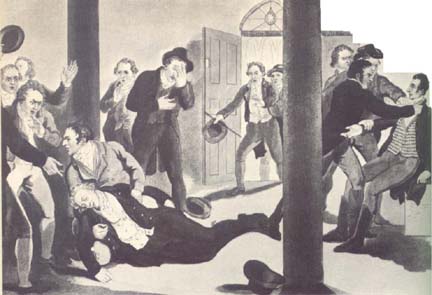A queer exhumation was made in the Strip Vein coal bank of Capt. Lacy, at Hammondsville, Ohio, one day last week. Mr. James Parsons and his two sons were engaged in making the bank, when a huge mass of coal fell down, disclosing a large smooth slate wall, upon the surface of which were found, carved in bold relief, several lines of hieroglyphics. Crowds have visited the place since the discovery and many good scholars have tried to decipher the characters, but all have failed. Nobody has been able to tell in what tongue the words were written. How came the mysterious writing in the bowels of the earth where probably no human eye has ever penetrated? There are several lines about three inches apart, the first line containing twenty-five words. Attempts have been made to remove the slate wall, and bring it out, but upon tapping the wall it gave forth a sound that would seem to indicate the existence of a hollow chamber beyond, and the characters would have been destroyed in removing it. At last accounts Dr. Hartshorn, of Mount Union College, had been sent for to examine the writing.
— Wellsville Union, quoted in The True Latter Day Saints’ Herald, Jan. 1, 1869


